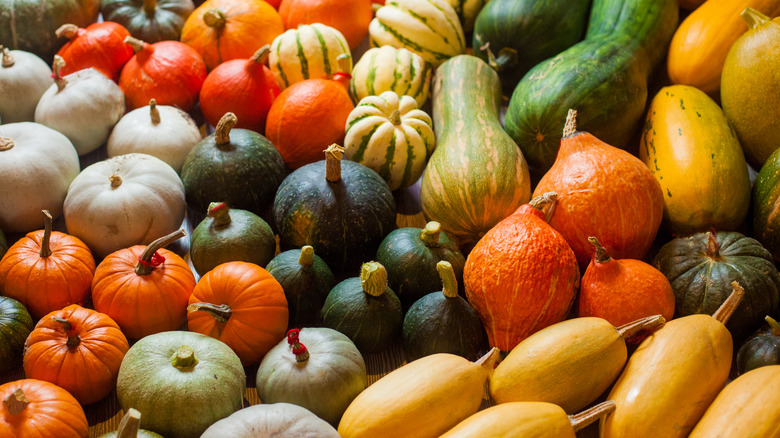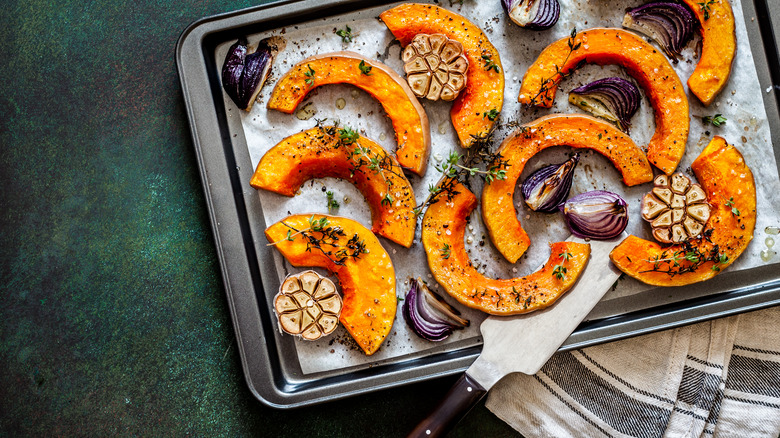Mistakes You've Been Making When Cooking Winter Squash
When the temperature dips and the air is a bit crisp, there's nothing quite like a dish with winter squash. Whether you prefer butternut squash, acorn squash, kabocha squash, or one of the other many varieties, they're an incredibly versatile ingredient that goes well with so many dishes, from pureed in soups to roasted in grain bowls and tossed atop salads. However, there are a few mistakes that many home cooks make when it comes to preparing their winter squash that can take it from silky and delectable to a mushy, bland mess.
One of the biggest mistakes is not considering your final recipe when deciding how to cook your squash. Yes, no matter how you prepare it, it will end up being cooked — but it might not be the ideal texture or flavor. Roasting winter squash gives it a soft texture, and that's the perfect cooking method if you're looking to either mash the winter squash or use it in a soup or sauce of some kind. If your squash is going to be used in a dish where it should remain in relatively firm chunks, searing it can be the better option. You should also be mindful of the moisture content so it doesn't get too soggy.
Keep it stable — and add some spice
Another mistake that many people make with winter squash comes down to handling its odd structure. Many varieties of winter squash, such as butternut squash, can be a bit awkwardly shaped and difficult to chop. One tip from Bon Appétit is to slice off the very tip at the bottom, so that your squash has a stable base that makes it easier to steady while you peel or chop. Also, don't be afraid to divide it into sections. While a roasted halved butternut squash looks gorgeous, there's nothing wrong with separating it into a few more parts so it's simpler to work with.
Finally, when it comes to seasoning, you can be quite generous with squash — the natural flavor is somewhat bland in comparison to other vegetables, so you can easily add in all your favorite herbs and spices without worrying it'll clash or be too overwhelming. As with any dish, you'll want to taste as you go, and don't be afraid to sprinkle a little more salt and pepper if you think your recipe needs it. And, don't restrict yourself to one category! The unique thing about winter squash is that it can go in a sweet direction if you add flavors like brown sugar or maple, and it can go in a savory direction if you incorporate herbs and other spices.

